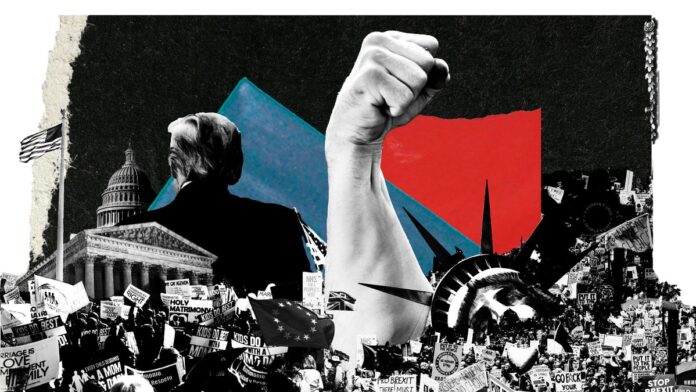Author: David Brooks
Affiliations: The New York Times
Organization/Publisher: The New York Times
Date/Place: March 12, 2022/USA
Type of Literature: Analysis
Word Count: 2000
Link: https://www.nytimes.com/2022/02/17/opinion/liberalism-democracy-russia-ukraine.html
Keywords: Liberalism, World Order, US, and Democracy
Brief:
In the early 1990s, several hopeful signs of progress were recorded to global democracy, including: the collapse of the Soviet Union and its form of communism, the Ukrainian vote for independence, the unification of Germany, the spread of democracy across Eastern Europe, the release of Mandela from prison and the end of apartheid in South Africa, and the Oslo peace process to bring peace to the Middle East. However, regarding evolution towards democracy, the 21st century has witnessed history reverting and a worldwide retreat from democracy. Today, the world has an authoritarian strongman in Russia that has invaded his weak neighbor, China is committing genocide on its people and threatening to invade Taiwan, cyberattacks are increasingly undermining the world order, and across the West thuggish populists are undermining nations from within. In the author’s opinion, the 21st century has become regressive and a dark century “because the seedbeds of democracy have been neglected.” The founding fathers of American democracy knew that “democracy is not natural” but needs a lot of cultivation to function and be sustainable. Although they were fervent believers in liberal democracy and had a profound respect for individual virtue, they also recognized “individual frailty” and the “depravity of human nature.” As a result, they built a system that respected majority rule and popular opinion but with institutions as guardrails to check a misled majority and ambitious demagogues. The genius of the constitutional order was to prevent the concentrations of power. Besides the constitutional limit of power, the founders believed that civic institutions and practices would cultivate good and self-governing citizens. Earlier generations of Americans were “content to prosper behind the safety of the oceans.” Nevertheless, after World War II, American leaders believed that “the old attitude wasn’t working anymore” and focused on establishing a liberal world order so that America would remain secure. As America’s founders thought that democracy is not natural, the postwar generation believed that “peace is not natural” but needs cultivations from the weeds of greed and frailties of human passion. Democracy and world peace were taken for granted to the extent that the liberal democratic order seemed “natural and normal, even inevitable.” However, the moderate views on human nature have faded over the past few generations and been replaced by the culture of Narcissism, and a belief that “human beings should be unshackled from restraint.” Most stakeholders of democratization sidelined the complex works of “cultivating virtuous citizens or fighting against human frailty” while focusing more on privatization and market reforms. Even in America itself, the institutions that the founding fathers and earlier generations thought were essential to cultivate a democratic citizenry have become irrelevant or malfunctioned over the past decades. Most civic associations, including churches and media outlets, have turned partisan. By forgetting the realm of humans’ greedy nature and making minimal efforts to prevent monsters, “the world returns to the normal historical authoritarianism of human history.”
By: Jemal Muhamed, CIGA Research Associate




